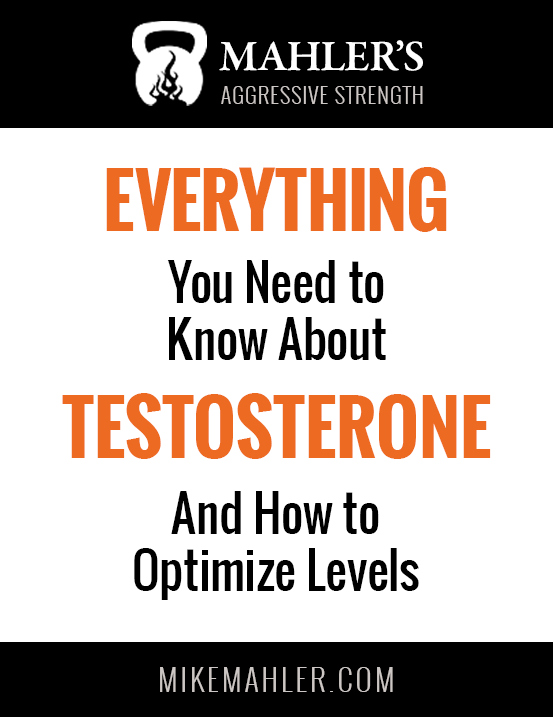Unlike hyped supplements such as tribulus, that don’t do jack to increase testosterone, the South African herb Bulbine Natalensis works and has been shown in studies to increase testosterone by a whopping 347% and crush estrogen by 35%. This is exactly what you want in an all-natural testosterone booster.
What you do not want is to increase testosterone and have the majority of it convert into estrogen via aromatase enzymes. Estrogen dominance is a big problem right now (the popularity of reality TV is overwhelming proof!) and any steps to increase testosterone should be balanced with controlling excess estrogen for maximum benefit. At the same time you don’t want to drive estrogen too low, as it is a surefire way to kill sex drive, sex function, and mood. The key is balance and an optimal ratio of testosterone to estrogen, which is what Bulbine Natalensis helps provide.
Now when it comes to Bulbine, it is critical that you use the right extract. The highest quality extract on the market is known as ProLensis™. If it is not ProLensis you are wasting your money and time. ProLensis™ is the same extract of bulbine that was used in the studies that proved its efficacy. In addition to the importance of utilizing ProLensis™ it is also critical to have the right dose. More is not better with Bulbine Natalensis and too much can lower testosterone.
How ProLensis™Bulbine Natalensis works
ProLensis™ is a multi-faceted compound in all of the ways it exerts its positive effects on the hormonal balance of the body.

In regards to testosterone, ProLensis™ increases GnRH-LH signalling, and also increases cholesterol in the testes. These distinct processes are important for testosterone synthesis. GnRH, or Gonadotropin-Releasing Hormone, is released from the hypothalamus in the brain. In turn, this stimulates the release of LH, or Luteinizing Hormone, from the pituitary. LH is the hormone that directly stimulates cells (called Leydig Cells) in the testes to release testosterone. Evidence shows that ProLensis™ can stimulate LH 169% compared to study controls.

By enhancing GnRH-LH signalling, ProLensis™ amplifies the process by which testosterone is stimulated, akin to turning up the volume on a stereo.
In cooperation with this, ProLensis™ also elevates levels of testicular cholesterol. Cholesterol is the equivalent of raw material in the testes job of creating testosterone. The cholesterol is taken up into the mitochondria of the testes where it is processed into pregnenolone. From this stage it is converted into sex steroids and glucocorticoids. Due to cholesterol’s status as a raw material, it’s uptake into the testes is the rate-limiting step in sex steroid synthesis. This manifests into a marked increase in testosterone of 347%, as shown in research.
In other words, testosterone creation can only be enhanced if testicular cholesterol levels are elevated. In doing this, ProLensis™ increases testosterone output.
ProLensis™ has also been shown to act as an aphrodisiac. Studies involving mammals given ProLensis™ show a significant increase in frequencies of mount, intromission, ejaculation and ejaculatory latency. This effect is believed to be due to the increase in acid phosphatase (ACPT) in the testes. ACPT is widely distributed in the testes and plays an important role in the physiology of sperm. Increased levels of this enzyme are associated with higher testes output. Researchers believe this effect suggests an enhanced mobilization of carbohydrate and lipid metabolites which are used by the accessory sex structure and/or spermatozoa in the seminal fluid.
ProLensis™ contains phytochemicals that drive the machinery involved in sperm production and sex drive.
In addition to the effects on blood flow to sexual organs that the alkaloid phytochemicals exert, researchers have hypothesized that other constituents of ProLensis™ may act directly on the central nervous system, modulating the action of neurotransmitters. Unbeknown to some, neurotransmitters such as serotonin play a very large role in the complicated science of sex drive.
By influencing neurotransmitters, the bioactive agents present in ProLensis™ further augment the aphrodisiac effect of the extract.
Investigation into ProLensis™ has also demonstrated a marked decrease in estrogen levels in mammalian research models. This decrease is as much as 35% in comparison to study controls. While the researchers do not speculate why this may be the case, they do speculate that this reduction in estrogen may be partly responsible for the increased testosterone.
In summary, ProLensis™ exerts several favorable effects on the hormonal milieu, documented in the table below.
| Hormones | % Change |
| Testosterone (serum) | ↑ 347% |
| Luteinizing Hormone (serum) | ↑ 169% |
| Estrogen | ↓ 35% |
| Prolactin (serum) | ↔ No change |
1. Androgenic activities of Bulbine natalensis stem in male Wistar rats. Yakubu MT, Afolayan AJ. Pharm Biol. 2010 May;48(5):56876.PMID: 20645801
2. Effect of aqueous extract of Bulbine natalensis (Baker) stem on the sexual behaviour of male rats.Yakubu MT, Afolayan AJ.Int J Androl. 2009 Dec;32(6):629-36. Epub 2008 Aug 15.PMID: 18710410 [PubMed – indexed for MEDLINE]

